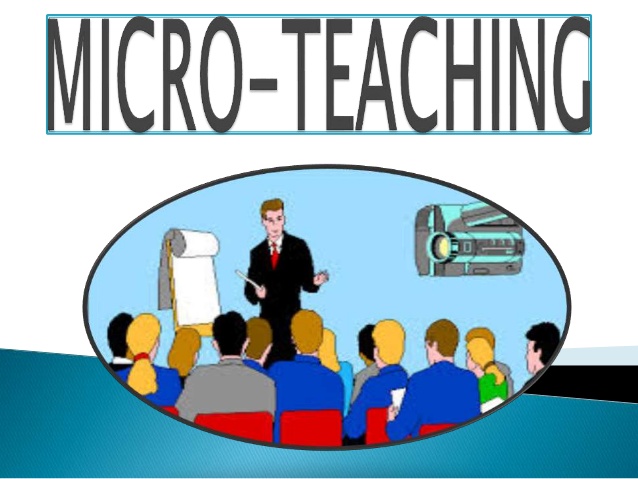If your a university student from faculty of education, it is quite familiar for you to hear the Micro-teaching. Because I believe that you have to deal with this course. I myself took the course when I was in sixth semesters. Fortunately, I got A grade for this course. So that in this Article I would like to explain briefly about micro-teaching, including its definition, history and aim.
A. Definition of Micro-teaching
One of the improvement efforts in the field of educational practice is in the way and the results of our work as teachers which require knowledge, skills and professional attitude of a teacher that differs from another profession is to implement micro teaching. According to Allen and Cooper (1970:1):
“Micro teaching is a teaching situation which is scaled down in terms of time and numbers of students. Usually, this has meant a four to twenty-minutes lesson involving 3 to 10 students. The lesson is scaled down to reduce some of the complexities of the teaching acts, thus allowing the teacher to focus on selected aspect of teaching.”
in the same vein, Kumari and Rao (2004) define that micro teaching a training procedure aiming at simplifying the complexities of the regular teaching process. Micro teaching is real teaching although a teaching situation is constructed in which the students–teacher and pupils work together in a practice situation. Based on the above definitions, in could be understood that micro means small, limited, narrow. Therefore, micro teaching can be interpreted as a teaching situation that is implemented in time and the number of students is limited; it is 4 to 20 minutes with 3 to 10 students in the classroom. It is a simple form of teaching where a prospective teacher and learners are in a limited and controlled environment. The teacher only teach one concept by using one or two teaching skills (Hamalik, 2009).
B. History of Micro-teaching
Historically, Micro teaching first developed in 1960s to give real opportunity for prospective teacher to get engaged in real situation of teaching. It was designed by Allen et al (1969, as cited in Kurdi, 2015) at Stanford University to enhance teaching performance through open collegial discussion. The model has been adapted to college and university teacher training programs where it has been used most often to elicit a concentrated, focused form of peer feedback.
The rationale of micro teaching is to apply collegial constructive criticisms to improve one's own teaching/learning strategies and, through assuming the student role, to sharpen one's insight into students' teaching/learning needs and expectations. This give university students to practice specific teaching skills to acquire positive reinforcement.
C. Aim of Micro Teaching
The main purpose of micro teaching is to provide opportunities for prospective teachers to practice practicing some teaching skills in front of their peers in a constructive atmosphere. Thus, he has integrated mental readiness, skills and performance skills for the provision of actual teaching practices in the classroom.
According to Allen (1969) cited in Hasibuan and Moedjiono (2010) states that aims of micro teaching as follow:
1. For prospective teachers
a) Provide real work experience and practice the basic skills of teaching separately.
b) Prospective teachers can develop teaching skills before they are involved in the real classroom.
c) Provide the possibility for prospective teachers to gain a variety of student conditions in the classroom
2. For teachers
a) Provide refreshment in educational programs.
b) Teachers gain an individualized teaching experience for their professional development.
c) Develop an open attitude for teachers to the reforms that take place in the educational curriculum
References
Allen, D.W. & Ryan, K. A. (1969). Microteaching. Massachusetts: Addison-Wesley Publishing.
Allen, D. W. & Cooper, J. M. (1970). Microteaching: History and the present status. Washington, D.C: ERIC Clearing House on Teacher Education.
B.Vina Kumari and D.Gumarti Baskhara Rao. (2004). Methods of teaching social studies. New Delhi: Dynamic Printer Delhi.
Kurdi, M. (2015). Microteaching. Medical Education and Technology Workshop. Karnataka, India: Karnataka Institute of Medical Sciences Hubli.
Regards,
Mrs.Don

Downvoting a post can decrease pending rewards and make it less visible. Common reasons:
Submit
I like this your post... That is awsome friend.. Thank for share a micro teaching @mistamistong
Downvoting a post can decrease pending rewards and make it less visible. Common reasons:
Submit